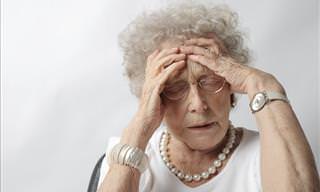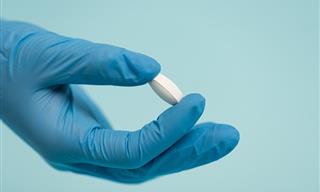1. Thermometer
When it comes to medical equipment everyone should keep at home, a thermometer is one tool you’ll surely use every flu season. Electronic or infrared thermometers give the fastest and most accurate reading, so they’re a good choice for most homes.
If you have a glass mercury thermometer, keep in mind that these older models are prone to breakage and contain dangerous chemicals. If you want to get rid of a mercury thermometer, avoid throwing it in the trash, as this can be dangerous for you and the environment. Recycle the device at the nearest recycling center or pharmacy.
2. Over-the-counter (OTC) Medications
Apart from your prescription medications, there’s a range of over-the-counter drugs that will be useful for various medical emergencies and illnesses. Here’s a shortlist of such medications and why you’d want to stock up on them:
- Pain relievers can help relieve headaches, backaches, muscle pains, and reduce fevers. Acetaminophen (Tylenol) is a good option in pill form, and topical creams like Icy Hot and Tiger Balm relieve muscle pains. Rub-on oral painkillers like Orajel, Anbesol, or Zilactin may also be beneficial if you have gum pain, canker sores, or toothaches.
- Antacids are beneficial for the occasional heartburn. Both products that contain calcium carbonate (brands like Tums) and magnesium (e.g. Mylanta) are effective and beneficial.
- Antihistamines help relieve allergy symptoms like sneezing, runny nose, and itching. Pill varieties that cause fewer side effects include cetirizine (Zyrtec) and loratadine (Claritin). A nasal steroid spray containing fluticasone, triamcinolone, or budesonide can help with a runny nose and eye drops with olopatadine or ketotifen can be more effective than pills if your main allergy complaint is itchy or watery eyes.
In addition to the basic list of medicines, you may want to add other items tailored to your needs. For example, you may need hydrating eye drops if you have dry eyes. If you’re prone to constipation, you may want to add a bulk-forming laxative with psyllium; or stock up on phenazopyridine (Uristat and Prodium) if you’re prone to bladder infections and need to relieve burning and other unpleasant symptoms quickly. The bottom line is, think of what extra OTC medications you and other family members may need.
3. Blood pressure monitor
A blood pressure (BP) monitor is one of the most useful medical devices for the home, especially if you’re older, or live with hypertension or hypotension. If you’re generally healthy and have no cardiovascular issues, there’s no need to measure your blood pressure every day. But checking your blood pressure when you don’t feel well can help detect a problem early.
A BP monitor is even more beneficial for those who have low or high blood pressure. It helps track your daily blood pressure and make adjustments in your medication dose with your doctor if you notice that your current medication isn’t working.
4. Sunscreen
Keep a big bottle of sunscreen in your medicine cabinet at all times. Ideally, it should be between SPF 30 and SPF50 and should have the label “broad spectrum,” which means that it will protect you from both ultraviolet and infrared sun rays.
The American Academy of Dermatology suggests that you wear sunscreen on the face and body every day you go outside (going out in the garden or yard counts as outside too). Sunscreen will protect you from skin cancer and signs of skin aging, so it’s beneficial for everyone.
5. Bug repellent
If you’re prone to getting bug bites, having a bug repellent spray or cream is a must-have in the summer. But even if you only go outside occasionally, having a bottle of bug repellent is beneficial for keeping disease-causing ticks and mosquitos away. You can even make your own bug repellent out of natural ingredients if you’d like. We explain how to do so here - Want Natural Ways to Keep Pests Away? Check These Out!
6. Melatonin
In the past few years, a lot of research has been done regarding the importance of sleep for our health. Unfortunately, many people are light sleepers or just get the occasional stress-induced insomnia. For these occasional sleep mishaps, taking a pill with melatonin can help you fall asleep.
Melatonin is a naturally present hormone in our brain. It helps us fall asleep and stay asleep throughout the night, so taking a melatonin supplement can help fight insomnia if you have trouble sleeping naturally.
7. Bandages
Injuries like cuts, scrapes, minor burns, and just plain blisters are the reality of life. So it’s better to be prepared for such mishaps and keep an assortment of bandages and antiseptics in stock. According to The American Red Cross, a family of four should have a kit stocked with 25 adhesive bandages in various sizes, 1 roll of adhesive tape, 2 roller bandages, 10 sterile pieces of gauze, and two absorbent compress dressings.
Hydrogen peroxide can be used to clean wounds, and an antibiotic cream like Neosporin can help heal and disinfect a minor wound or burn. Lastly, the American Association of Retired Persons (AARP) suggests that older adults better use silicone sensitive skin bandages instead of regular bandages because they will be easier to remove without tearing the skin.
8. Remedies for itchy skin and sunburns
For the times that you do get an allergic reaction or bug bite on your skin, having a topical itch relief cream like an over-the-counter 1% hydrocortisone cream is a real lifesaver. Plain old calamine lotion, aloe vera gel, or an antihistamine cream also help you soothe itching caused by sunburn, poison ivy, bug bites, and other itchy skin issues, but they may not be as effective as hydrocortisone.
At the same time, note that hydrocortisone should not be used for more than 2 weeks, as it may lead to skin thinning. So, if you have an itchy spot that persists for over 2 weeks, you’ll need to seek professional help.
9. Cough remedies
Most coughs will go away on their own and don’t require any medical help. If you have a fever, treating it with acetaminophen can help. You can use a saline nasal spray to clear up a stuffy nose. Decongestant sprays and pills are also available, but doctors recommend avoiding them for older adults, as their active ingredients can increase your heart rate, blood pressure, cause insomnia, and can cause rebound nasal congestion too after a few days.
Avoid combining cold medicines with pain and fever relievers because it can lead to an acetaminophen overdose. Around 30,000 Americans go to the emergency room every year as a result of combing acetaminophen and cold medicine with acetaminophen, like NyQuil.
10. Petroleum jelly
Petroleum jelly (such as Vaseline) is an essential product. It has countless beneficial uses around the house. Crucially, it relieves dry skin and chipping nails, softens rough skin on the elbows and feet, prevents chafing, and works as an excellent moisturizer for dry skin.
The American Academy of Dermatology states that petroleum jelly can be just as successful as antibiotic creams in healing minor cuts or scrapes. Just wash the area with soap and water, then cover it in a thin layer of petroleum jelly, and put a bandage on top. Change the bandage daily, and it should heal in a few days.
Share these useful tips with family and friends!
 Go to BabaMail
Go to BabaMail


































